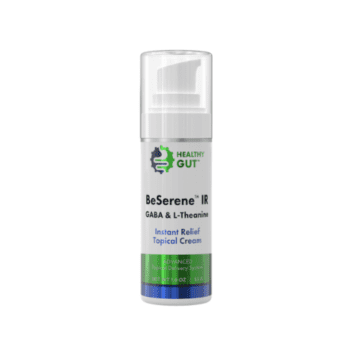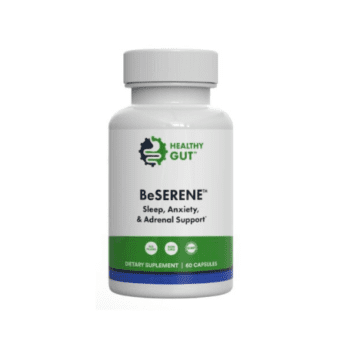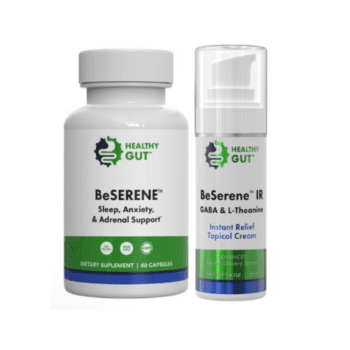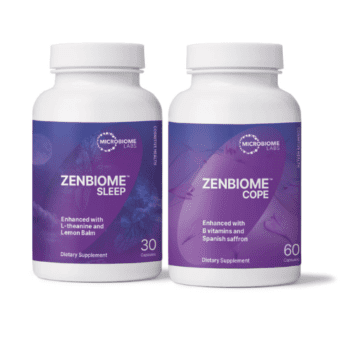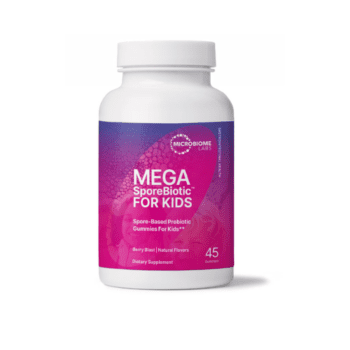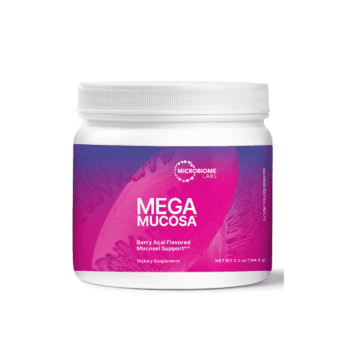

More Posts from
Gut Microbiome & Digestion

Meet Your Microbiome: The Human Microbiome and How to Optimize It
Meet Your Microbiome: The Human Microbiome and How to Optimize

Benefits of Probiotics Including Improved Gut Health
Benefits of Probiotics Including Improved Gut Health “Probiotics” has become

Gut Microbiome Health and the Gut-Immune System Connection: Part 2 Lower GI
Gut Microbiome Health and the Gut-Immune System Connection: Part 2
Gut-Specific Fish Oil Supplement Background
Gut-Specific Fish Oil Supplement, formerly MegaOmega, is the most comprehensive, full-spectrum fish oil scientifically formulated to support a healthy gut microbiome with a superior ratio of EPA, DHA, and DPA to support healthy immune and gut barrier function. Gut-Specific Fish Oil is specifically formulated with higher EPA content than DHA content to support a healthy gut.
Gut-Specific Fish Oil Ingredients
Gut-Specific Fish Oil specially contains these omega-3 fatty acids: eicosapentanoic acid (EPA), docosahexanoic acid (DHA), and docosapentanoic acid (DPA) – each with unique health benefits.
Eicosapentanoic acid (EPA)
EPA is a powerful omega-3 for supporting gut health and well-documented for its ability to support intestinal mucosa. EPA can also prevent blood from clotting easily and reduce pain and swelling.
Docosahexanoic acid (DHA)
DHA is most known for its beneficial impact on brain health. An adequate amount of DHA is necessary to ensure optimal neurological development because it is a main structural component of the human brain, cerebral cortex, skin, sperm, testicles and retina. Another one of DHA’s most important roles is the modulation of phospholipid membranes, known as phosphatidylserine (PS). This substance supports healthy signal conduction and neurons in the brain and the gastrointestinal tract.
Docosapentanoic acid (DPA)
DPA, also known as the “forgotten fatty acid”, is receiving more attention in the omega-3 family due to its unique ability to support EPA and DHA tissue status, but it also supports a healthy gut. Supplementation with DPA can also support healthy cells and tissues.
Form & Function
Gut-Specific Fish Oil contains the above mentioned polyunsaturated fatty acids (PUFA) in the form of essential omega-3 fatty acids. Meaning, the human body cannot make these components and therefore they must be supplemented. Omega-3 fatty acids consist of long chains of carbon atoms with a carboxyl group at one end and a methyl group at the other. These chains contain two or more double bonds which distinguish them from saturated and monounsaturated fatty acids. Omega-3 fatty acids also play an important role in the composition of phospholipids that form the structure of cell membranes. Deficiency of omega-3 fatty acids can lead to rough, scaly skin. Omega-3 fatty acids are found in foods such as flaxseed and fish and also in supplements such as Gut-Specific Fish Oil.
Applied Research & Clinical Studies
Undoubtedly, fish oils are beneficial to human health and have been studied extensively for their positive impact on cardiovascular and brain health. However, many fish oil supplements miss the mark when it comes to formulation and are severely underutilized for digestive and intestinal health. Omega-3 fatty acids help improve gut function and microbiome composition in three main ways:
- modulating the type and abundance of gut microbes (2,3,4)
- altering the levels of proinflammatory mediators, such as endotoxins (lipopolysaccharides) and IL17 (3,4)
- regulating the levels of short-chain fatty acids (3,4,5)
A study published in the Journal of Scientific Reports found that omega-3 supplementation increases microbial diversity, specifically Bifidobacterium, Akkermansia muciniphila, and Lactobacillus, and supports the production of intestinal alkaline phosphatase (IAP) which balances gut microbiota. Other studies completed in adults also showed changes in gut microbiome after omega-3 PUFA supplementation. Specifically, a decrease in Faecalibacterium, which was often associated with an increase in the Bacteroidetes and butyrate-producing bacteria belonging to the Lachnospiraceae family. When these bacteria are out of balance dysbiosis will occur (3).
Omega-3 fatty acids have been found to reduce dysbiosis and bowel inflammation in conditions where there is an imbalance of pathogenic and commensal bacteria. (2). Consuming via diet or supplementation with omega-3 PUFAs has been reported to protect intestinal cells from inflammatory damage that leads to inflammatory bowel disease and to activate immune cells by reducing the production of proinflammatory eicosanoids (4).
In a 6-week dietary intervention study omega-3 supplementation resulted in a significant increase in iso-butyrate, isovalerate and butyrate. Demonstrating that omega-3 fatty acids alter the gut microbiome composition and some of its cardiovascular effects appear to be potentially mediated by its effect on gut microbial fermentation products indicating that it may be a prebiotic benefit (5).
Indications
- Alcoholic steatosis
- Alcohol-induced liver injury
- Obesity
- Nonalcoholic Fatty Liver Disease
- Inflammatory Bowel Disease
- Adult onset diabetes mellitus
- Hypertension
- Arthritis
- Atherosclerosis
- Depression
- Thrombosis
- Cognitive decline
Advantages of Gut-Specific Fish Oil
Gut-Specific Fish Oil is high omega-3 concentration can be beneficial for reducing the risk factors for cardiovascular disease and is beneficial in reducing triglyceride levels. Researchers continue to study omega-3 supplementation ability to reduce the risk of developing cancer (6) due to its ability to reduce oxidative stress (2) via it’s anti-inflammatory effects (6). Additionally, human and animal studies have shown the ability of omega-3 fatty acids to positively influence the gut-brain axis through the gut microbiota composition (3). Omega-3 PUFA’s are a feasible approach to maintain gut health (4).
Suggested Use
Ages 8+: Take 2 soft gels daily with a meal, or as directed by your healthcare practitioner.
Contraindications
There are no known contraindications for use of this Gut-Specific Fish Oil Supplement. However, there are known contraindications to use of fish oil and Warfarin. Please consult with your healthcare practitioner if you have questions, concerns or require additional information.
Applied References
- https://microbiomelabs.com/home/products/megaomega/
- Menni, C., Zierer, J., Pallister, T. et al. Omega-3 fatty acids correlate with gut microbiome diversity and production of N-carbamylglutamate in middle aged and elderly women. Sci Rep 7, 11079 (2017). https://doi.org/10.1038/s41598-017-10382-2
- Costantini, Lara et al. “Impact of Omega-3 Fatty Acids on the Gut Microbiota.” International journal of molecular sciences vol. 18,12 2645. 7 Dec. 2017, doi:10.3390/ijms18122645
- Fu, Yawei et al. “Associations among Dietary Omega-3 Polyunsaturated Fatty Acids, the Gut Microbiota, and Intestinal Immunity.” Mediators of inflammation vol. 2021 8879227. 2 Jan. 2021, doi:10.1155/2021/8879227
- Amrita Vijay, Stuart Astbury, Caroline Le Roy, Tim D Spector & Ana M Valdes (2021) The prebiotic effects of omega-3 fatty acid supplementation: A six-week randomized intervention trial, Gut Microbes, 13:1, 1-11, DOI: 10.1080/19490976.2020.1863133
- National Institutes of Health (March 26, 2021) https://ods.od.nih.gov/factsheets/Omega3FattyAcids-HealthProfessional/
Gut Microbiome & Digestion Products
-
-
-
-
$119.98
ZenBiome™ Sleep is formulated to help clients deal with occasional...
Get Social
Recent Podcasts
Recent Courses
Toxicity & Detoxification Masterclass 2024
The toxicity and Detoxification Masterclass covers a wide
Brain & Nervous System Masterclass 2024
19 Leading Experts Share Cutting-Edge Science, Effective Practices,
Autoimmune Masterclass 2024
Autoimmune Masterclass brings together 17 of the world’s
Toxicity & Detoxification Masterclass
The toxicity and Detoxification Masterclass covers a wide
Get the RHT Newsletter
Be the first to get access to special offers, new podcasts, courses, products and events from Rebel Health Tribe.
Facebook
Twitter
Pinterest
LinkedIn
Reddit
WhatsApp
Telegram
StumbleUpon
-
HistaHarmony™
$46.99If you get fatigued, flushed, or foggy after...
-
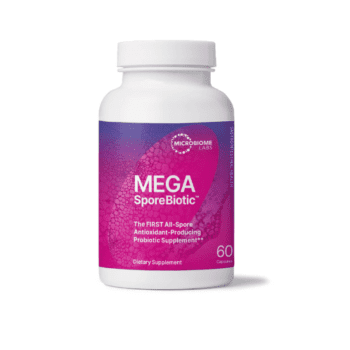
- Select options This product has multiple variants. The options may be chosen on the product page
MegaSporeBiotic
$59.99 – $176.95MegaSporeBiotic™ is a 100% spore-based, broad-spectrum probiotic shown...
-
MegaSporeBiotic For Kids Gummies
$39.00MegaSporeBiotic™ Gummies are a 100% spore-based proprietary probiotic...
-
MegaMucosa
$59.99MegaMucosa is the first complete mucosal support supplement...

Meet Your Microbiome: The Human Microbiome and How to Optimize It
Meet Your Microbiome: The Human Microbiome and How to Optimize It On and in the average human, there reside approximately

Benefits of Probiotics Including Improved Gut Health
Benefits of Probiotics Including Improved Gut Health “Probiotics” has become quite the buzzword – with countless products and supplements proudly

Gut Microbiome Health and the Gut-Immune System Connection: Part 2 Lower GI
Gut Microbiome Health and the Gut-Immune System Connection: Part 2 Lower GI The diverse community of microbes in your digestive
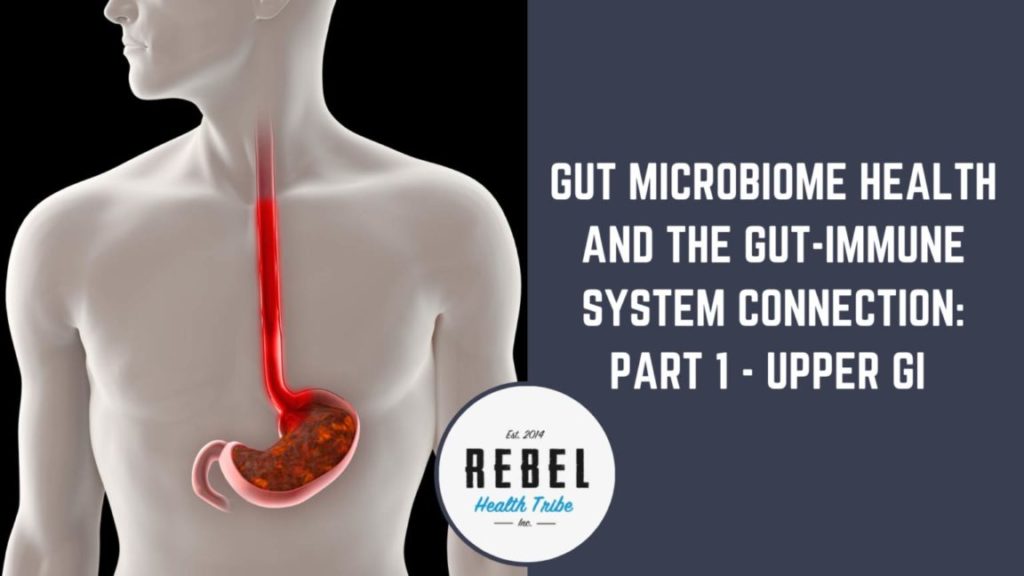
Gut Microbiome Health and the Gut-Immune System Connection: Part 1 Upper GI
Gut Microbiome Health and the Gut-Immune System Connection: Part 1 Upper GI The message is out: gut health is critical
Taylor Oliver, MS, RD, LD
Taylor Oliver is a registered and licensed dietitian specializing in oncology and critical care, currently practicing in Oklahoma City, Oklahoma. She also has a Master’s in Holistic Nutrition. Writing, researching and traveling are a few of her favorite interests. She is passionate about food and loves trying new restaurants and recipes.
View All Author Posts





